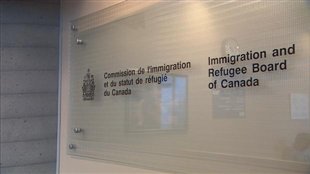If so, when and how?
Vacation
Successful refugee claimants (protected person) can lose their status through vacation if the decision to receive their status was obtained by directly or indirectly misrepresenting or omitting material facts. The Minister of Citizenship and Immigration (Minister) may begin a proceeding to present new evidence in showing such misrepresentation or omission of material facts. Persons can rebut this application, but cannot present anything to show that they are presently at risk. In other words, the only issue in a vacation proceeding is whether the protected persons obtained their status by misrepresentation or withholding material facts in the first place. It will not consider anything new in terms of the risk they may presently face.
If protected person is a permanent resident at the time of the vacation proceeding, such person will lose their permanent resident status with no appeal to Immigration Appeal Division and, if the protected person is a Canadian citizen, they may even lose Canadian citizenship based on fraudulent misrepresentation after a vacation finding.
Cessation
Protected persons can lose their status through cessation if the Minister can demonstrate that they would no longer be at risk in their country. No misrepresentation or omission is required, but cessation only deals with the present situation. The following five situations under section 108(1)(a) to € can trigger cessation:
- They have voluntarily re-availed themselves for the protection of their nationality; or
- They have voluntarily re-acquired nationality after the loss; or
- They have acquired a new nationality and enjoys the protection of such new nationality; or
- They have voluntarily re-established themselves in their country where they fled; or
- They can no longer continue to refuse to avail themselves for the protection of their nationality due to the change of circumstances in that country.
As a result of two amendments to the Immigration Protection Act in June 2012 and December 2012, upon cessation, the protected person loses their permanent resident status under s.46(1)(c.l) AND become inadmissible to Canada under section 40.1(1) and (2), even though cessation has no required misrepresentation or omission by the protected person.
Furthermore, it appears that there is no appeal available after cessation finding at the Immigration Appeal Division or Refugee Appeal Division. If cessation occurs before the protected person receives permanent resident status, cessation finding creates the same consequences as if their claim has failed in the first place. Therefore, after cessation, they cannot make an application based on humanitarian and compassionate grounds within the first 12 months unless it falls under section 25(1.2) exceptions AND they cannot access to Pre-Removal Risk Protection (PRRA) process for the first 12 months.
If protected persons were permanent residents at the time of cessation, then they would be no longer be able to work or study because no work or study authorization can be issued to them and a temporary resident permit (TRP) would not be available as per section 24(4). As a result, without appeals, PRRA, TRP, and no statutory stay pending judicial review, there would be no stopping for removal of the protected person who got the cessation finding.
Therefore, it would be completely devastating for those who have been established in Canada for a lengthy period of time to getting vacation or cessation, which effectively triggers their immediate removal from Canada.
If you have any individual questions or concerns, please contact our office for more customized consultation for your unique situation. Please note that this posting is for general information only and is not to be considered binding or official legal counsel since situations will vary and can be complicated. The content in this post is current as of the day of entry. Due to the changing nature of Immigration law, the information in this entry may or may not still be applicable.

